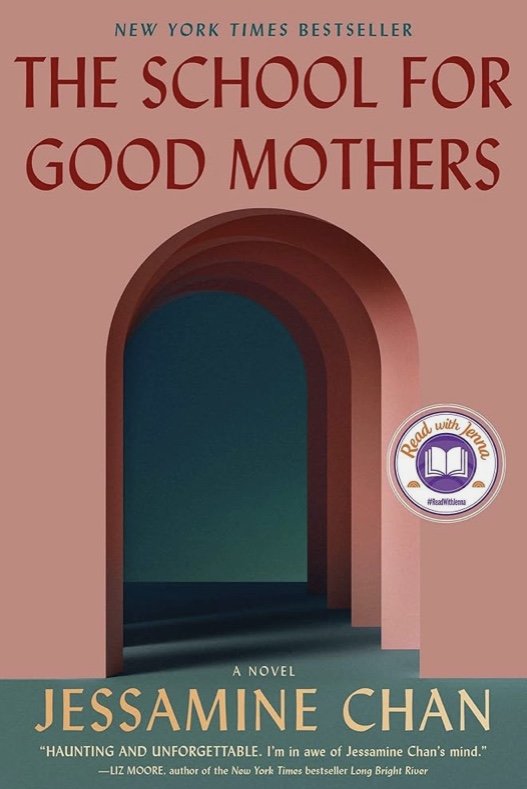The School for Good Mothers by Jessamine Chan (Simon & Schuster)
“We have your daughter,” are words that would strike terror in any mother’s heart, especially when they’re spoken over the phone by a police officer. Frida Liu is certain that whatever this statement might forebode, she’ll be able to clear it up. She’s a solid citizen, employed by the Wharton School of the University of Pennsylvania, the possessor of a Bachelor’s degree from Brown and a Master’s from Columbia, who contributes to a 401 (k) and a college savings account for her baby daughter. Although it’s true that she left her eighteen-month-old alone for over two hours, it’s also true that she’s a divorced mother whose brain was fogged from sleeplessness. Awake for the better part of two nights, comforting her daughter while she worked from home, she had gone to her office to pick up papers she needed to complete a job, began to check work emails, and lost track of time.
Negligent? Yes. Criminally negligent? Of course not. Anybody would understand that this is a forgivable offense--even her ex-husband and his new wife have forgiven her lapse of judgment. Frida devotes her life to her child during the 3.5 days she has custody of Harriet. When she considers her own childhood and the stern upbringing given by her immigrant parents, she’s certain Harriet is being given an enviable childhood.
This isn’t the point of view taken by Child Protective Services. A social worker sends her to a psychiatrist who takes one look at her and immediately asks “Is English your first language?” He follows this up later with the condescending response of “Aren’t you a smart cookie.” Frida has become a lesser form of human life in the eyes of authorities and is sent to a year of rehab in a live-in facility with other women who have failed as mothers.
Although offenses range from one mother letting her eight-year-old daughter walk home alone from the nearby library to another who posted a video of her child’s tantrum on social media to those who have physically injured their offspring, the mothers are all lumped together in an indistinguishable mass, with a mantra that they all recite regularly: “I am a bad mother but I am learning to be good.” To help them achieve this goal, each of them is given a robot child of the same age and race as the child that was taken from them. Powered by AI, these replicas of children have the brains and emotions of their human equivalents. They also hold data taken from their “mothers” that’s scrutinized and assessed to see if progress is being made by the women who care for them.
While suffering from the separation from their own children, the women are given rigorous standards to meet as they become parents to robots. Submerging their own speech and personality in the melodic, gentle tones of “motherese,” they face demands that are progressively more difficult, with a new one appearing the minute they’ve mastered the last. But the real progress they make is unmeasured. As they work toward a common goal, the women begin to nurture each other, a form of parenthood that goes under the school’s radar. As the mothers become softer and more tender, they become more vulnerable and this counts against them. They become emotionally involved with their robotic “children,” but are their words and actions being elicited by the robots as a form of entrapment?
Jessamine Chan has written a harrowing novel, based upon a true case in which a mother left her five-year-old child alone in the house for a few hours and lost him forever. Like Frida, this mother was raised by parents from another culture and like Frida, she was diminished by the way she was treated by authorities in the bureaucratic world of social welfare.
Layering and enlarging upon this history, Chan has added elements of dystopian and speculative fiction with dashes of pure horror, creating an Orwellian nightmare that seems perilously close to coming true. Her novel portrays every mother’s worst fear—that she’s not up to the task of keeping a child mentally and physically healthy, well loved, and securely cared for.
“Maybe people should have to work up to children, from plants to pets to babies,” Frida tells herself, “Maybe they should all be given a five-year-old, then four, then three, then two, then one…Why did they have to begin with a baby?” This question echoes throughout Chan’s novel as Frida painfully makes her way through the School for Good Mothers.~Janet Brown
